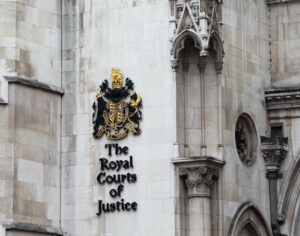Yesterday we got some good news and bad news on the Groklaw front. First the good news: Pamela Jones has changed her mind about her plans to quit publishing new content on Groklaw and announced that the site will be continuing it’s coverage of legal issues that challenge FOSS projects. The bad news is that, for the most part, Groklaw will be going on without Ms. Jones.
The new person at the helm is Mark Webbink, a lawyer who certainly has the credentials for the job. His history with Groklaw goes back to 2003, when he allowed Jones to use a previously published article on open source software. At the time he was the first general council for Red Hat, a position he held until 2004 when he became the company’s deputy general counsel for intellectual property. He’s currently a visiting professor of law at New York Law School, where he’s the Executive Director of the Center for Patent Innovations, and is also a senior lecturing fellow at Duke University law school. Since 2007, he been a board member of Software Freedom Law Center.
According to Jones, who handpicked him for the job, Webbink’s a great fit for steering Groklaw through post SCO waters:
“I trust him. I like his vision for Groklaw very much. What he has in mind to do is to include his law students, asking them to write articles for Groklaw too, for credit. So you won’t lose out on anything, as far as learning the legal process. In fact, it’ll be better, because Mark is a lawyer, so he knows many things I don’t.
“The hope is that other law professors — and professors of computer science — will include their students in this new Groklaw, what I call Groklaw 2.0. The more the merrier.”
Jones, who has trained and worked as a paralegal, founded Groklaw in May, 2003, during the early days of the SCO vs. IBM fiasco. On April 9th she announced the site would quit publishing new content on May 16th, the site’s eighth birthday. She was ready to move-on, she said. Besides, Groklaw had done it’s job, by helping end the threat to Linux that had been SCO. The site would remain accessible as an archive, but no new content would be published. Then, yesterday she explained that Groklaw users had changed her mind:
“I was immediately bombarded with messages asking me to keep the community going or to tell you where to assemble elsewhere. A lot of you asked me to at least keep News Picks going. Groklaw is all of us, not just me, and I have always taken your input as seriously as you would expect me to. So I thought about it, and I realized you are right. I would be irresponsible not to try to leave Groklaw in someone’s hands who could keep things going. The community is what makes Groklaw of real value, and it’s a FOSS community resource that we built together.”
She thinks that Webbink’s background in patent law will serve the site well, since most of the attacks on Linux and other open source projects these day concern patents. The new direction in which she imagines he will steer the site she calls “Groklaw 2.0,” a play not only on Web 2.0, but on the book Open Sources 2.0: The Continuing Evolution, a book of essays to which she is a contributor.
Certainly, it’s a good thing for the FOSS community that Groklaw will continue to exist. As long as there is a proprietary world, free software will come under legal attack, and it will always be important to have a place where we can have complex legal issues explained to us in terms we can understand. This is also important to the lawyers who have the job of defending us. They can derive great benefit from Groklaw’s research and legal brainstorming, as proven in the SCO case. Groklaw can also help lawyers figure out how to explain complicated IT issues to judges and juries who may not be very tech savvy.
It’s just as certain that Groklaw will not be the same without PJ’s DNA and fingerprints, for her writing displayed a humor and passion that was nothing if not compelling reading. More importantly, however, she has been a great example to all of us who use and believe in FOSS. She gives back. She uses her unique talents to help the community.
Thankfully, Jones has promised that she’ll continue to occasionally write for Groklaw. I, for one, will look forward to reading her articles.
Christine Hall has been a journalist since 1971. In 2001, she began writing a weekly consumer computer column and started covering Linux and FOSS in 2002 after making the switch to GNU/Linux. Follow her on Twitter: @BrideOfLinux




